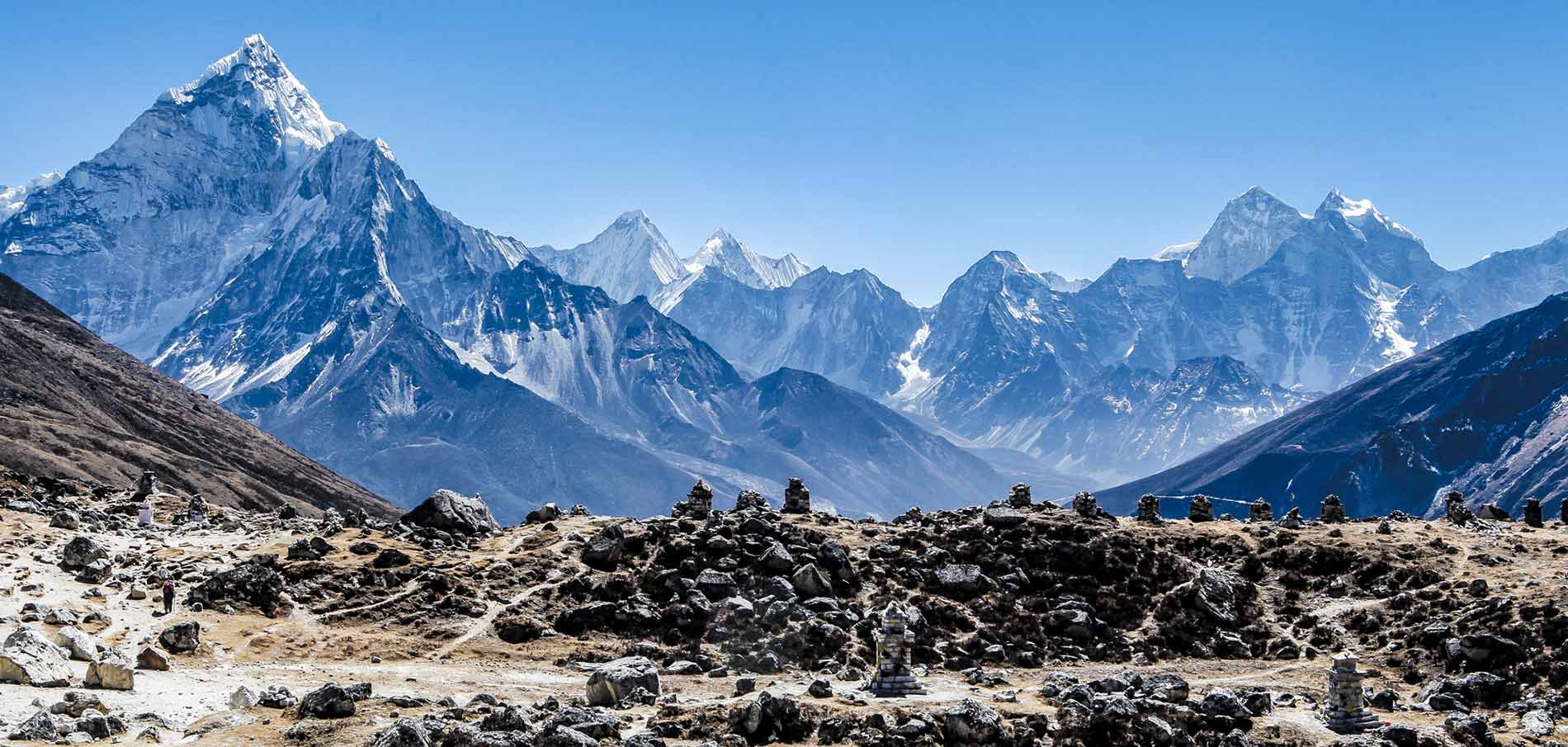Ever stood on a Himalayan ridge at dawn, glacier-carved peaks glowing amber, while a private chef prepares your organic breakfast? This isn't your average trekking experience—this is eco-luxury trekking in Nepal, where sustainability meets opulence.
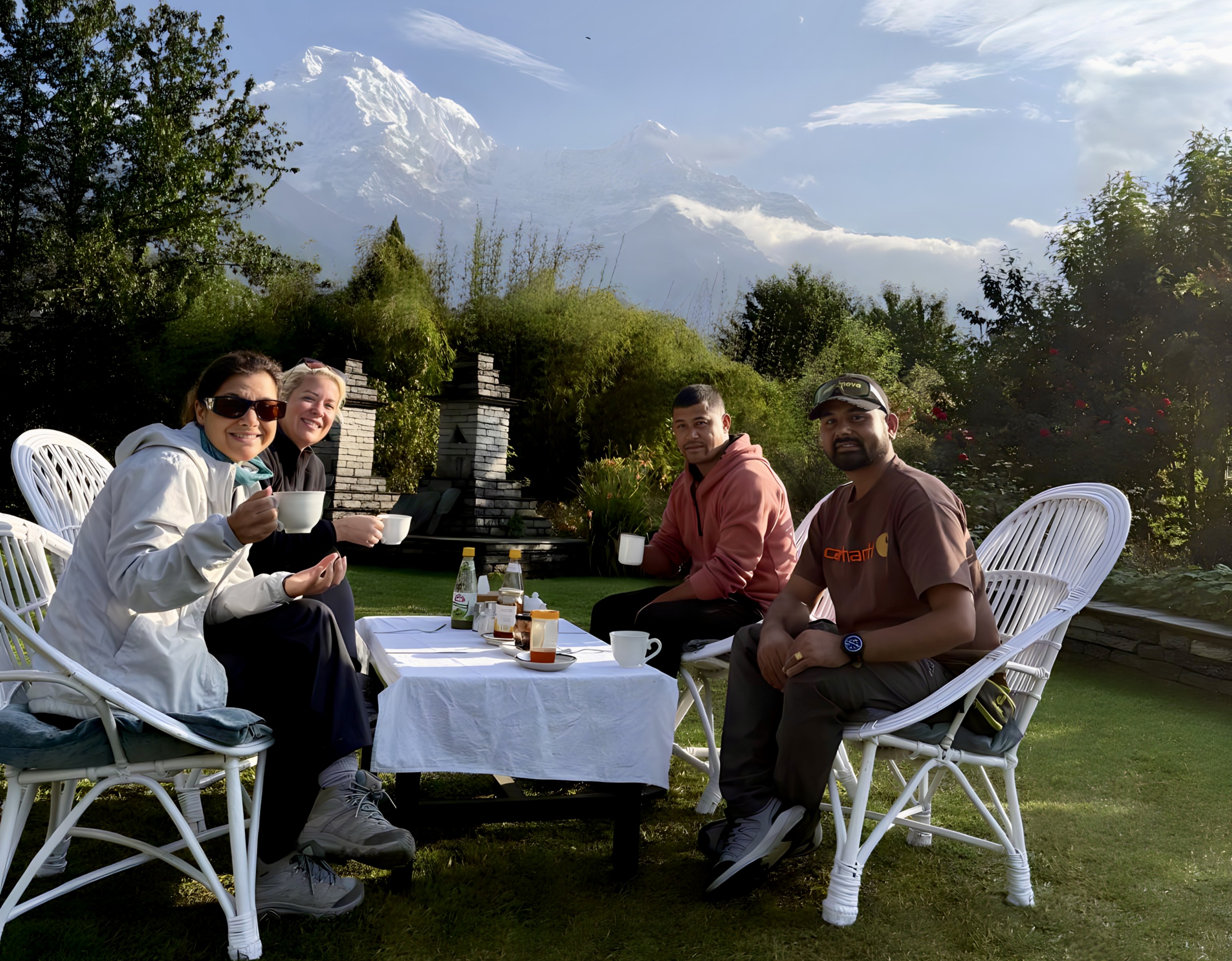
For adventurers who refuse to choose between environmental consciousness and comfort, Nepal's luxury trekking scene has evolved beyond recognition. Think solar-powered hot showers after challenging trails, organic farm-to-table cuisine in remote mountain lodges, and porters paid fair wages.
The beauty lies in the contradiction—accessing pristine wilderness while leaving a minimal footprint. Your guides are local conservation experts, your accommodations support mountain communities, and your presence helps protect fragile ecosystems.
But what happens when traditional Sherpa hospitality meets five-star service standards? That's where things get interesting...
Understanding Eco-Luxury Trekking in Nepal
What Makes Trekking in Nepal Unique
Nepal isn't just another spot on the map for trekkers – it's the holy grail. We've guided countless adventures through these mountains, and trust us, nothing compares to the moment when the Himalayas first reveal themselves in all their glory.
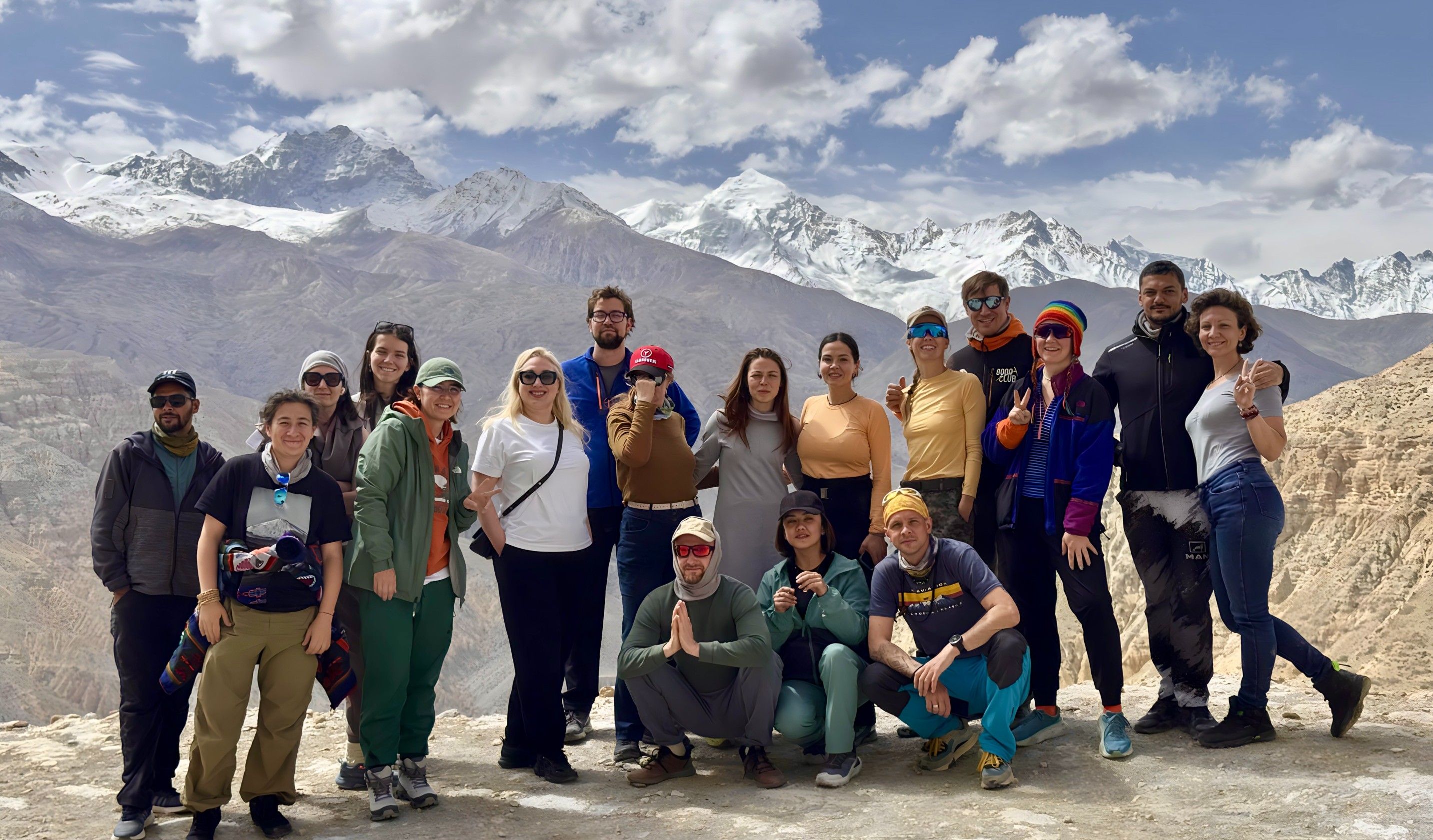
The magic of Nepal? It's that perfect blend of jaw-dropping landscapes and rich cultural experiences. One day you're standing beneath the shadow of Everest, the next you're sharing butter tea with monks in a centuries-old monastery.
What truly sets our Nepal treks apart is the incredible diversity packed into such a compact country. Within just a few days of hiking, we transition from lush subtropical forests to alpine meadows to the stark beauty of high-altitude deserts. The biodiversity here is off the charts – where else can you spot rhododendron forests and snow leopard territories in the same journey?
The Eco-Luxury Concept Explained
Gone are the days when "roughing it" was the only way to experience the Himalayas. We've reimagined trekking by blending environmental responsibility with genuine comfort.
Eco-luxury trekking isn't about bringing five-star hotels to pristine wilderness. It's our approach to thoughtful adventure – staying in carefully selected lodges that use renewable energy, enjoying organic meals prepared with locally-sourced ingredients, and experiencing authentic cultural exchanges that benefit local communities.
The "eco" part means we leave nothing but footprints (and even those we try to keep light). The "luxury" part? That's in the details: hot showers after a long day's trek, comfortable beds with quality linens, gourmet meals featuring local specialties, and guides who anticipate your needs before you even mention them.
How Luxury Holidays Nepal Pioneers Sustainable Adventure
We didn't just jump on the sustainability bandwagon – we helped build it in Nepal. Since our founding, we've made environmental and cultural preservation the cornerstone of everything we do.
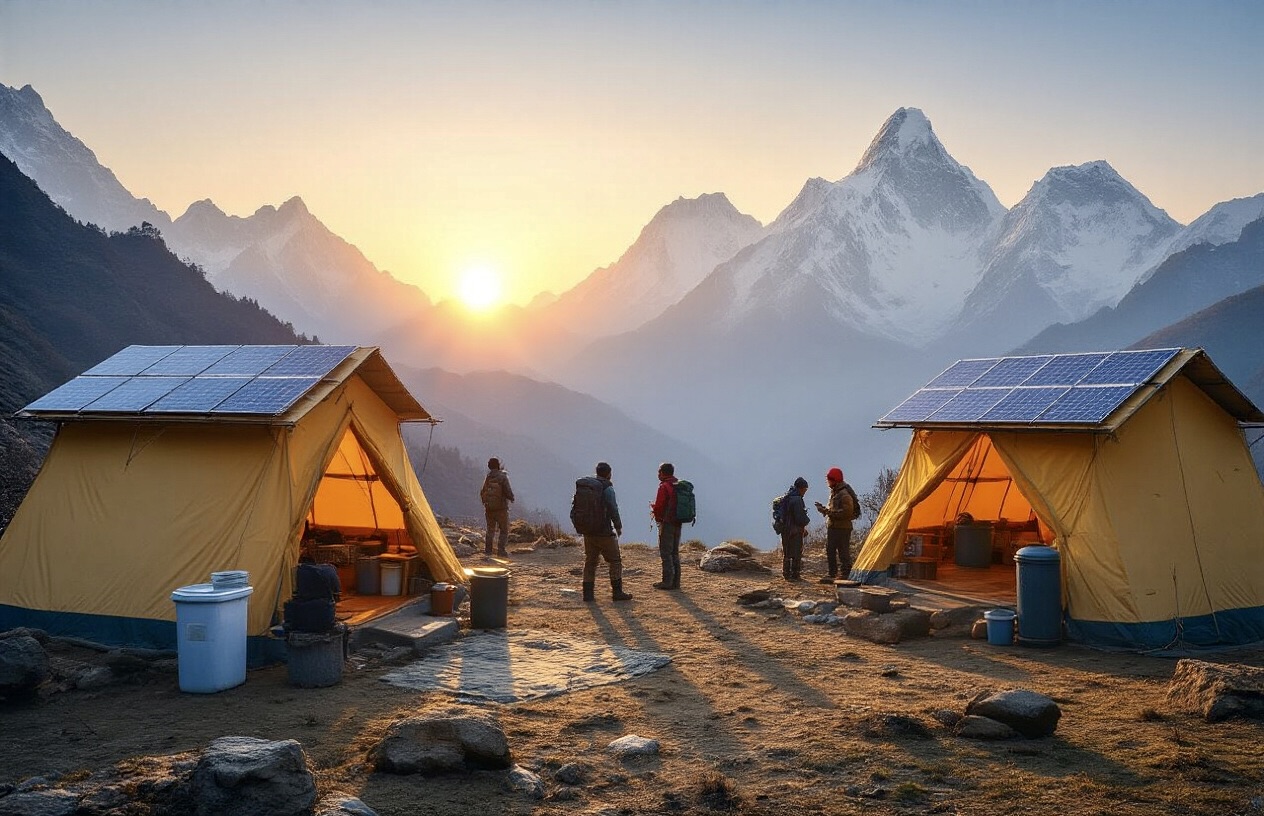
Our eco-luxury approach starts with our team. We employ local guides and porters, providing fair wages, proper equipment, and ongoing training. This isn't just good business – it's how we ensure authentic experiences while supporting mountain communities.
Every trek we design follows strict waste management protocols. We've implemented a "pack it in, pack it out" policy long before it became trendy, and we conduct regular trail cleanups with our staff and clients.
We've also pioneered partnerships with remote villages, creating sustainable tourism models that bring economic benefits while preserving traditional ways of life. Our guests don't just pass through these communities – they connect with them through homestays, cultural demonstrations, and shared meals.
The proof is in our results: we've reduced our carbon footprint by 30% over the past five years while increasing client satisfaction. Sustainable trekking isn't just possible – it's actually better.
Top Eco-Luxury Trekking Destinations
Everest Base Camp: The Ultimate Luxury Experience
We've transformed the iconic Everest Base Camp trek into something truly extraordinary. Gone are the days of basic teahouses and cold showers. Our luxury EBC experience includes premium lodges with hot showers, gourmet meals featuring organic local ingredients, and dedicated personal porters.
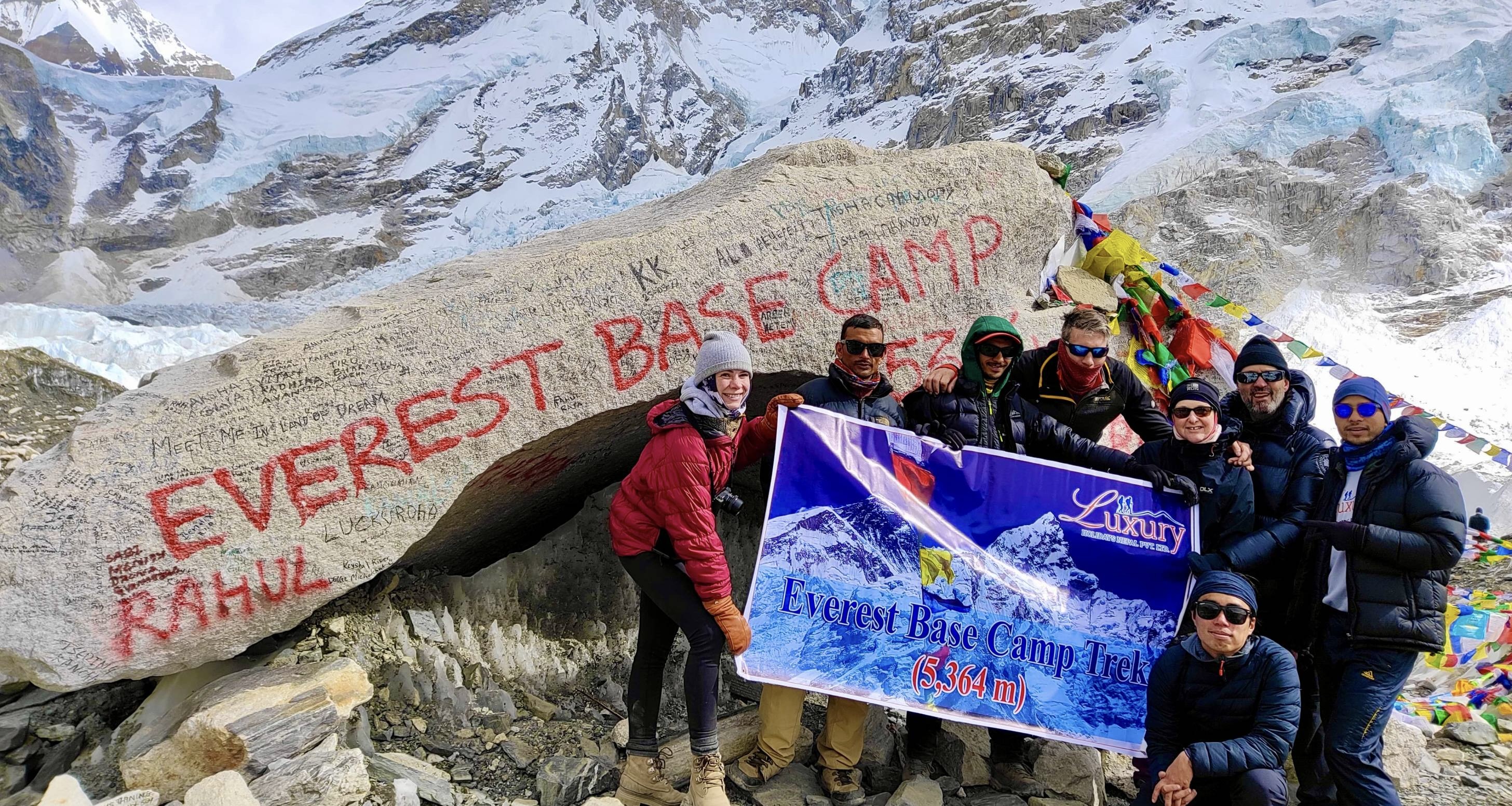
The magic starts in Lukla, where we bypass the crowds with private helicopter transfers. Along the trail, we've arranged exclusive meditation sessions with local monks and private cultural performances in Namche Bazaar.
Our eco-conscious approach means solar-powered accommodations wherever possible and strict adherence to leave-no-trace principles, even while enjoying five-star comforts.
Annapurna Circuit with Premium Accommodations
The Annapurna Circuit has always captured hearts with its diverse landscapes, but we've elevated the experience with carefully selected luxury lodges. Our guests enjoy spacious rooms with panoramic mountain views, private bathrooms, and nightly turndown service – yes, even at 3,500 meters!
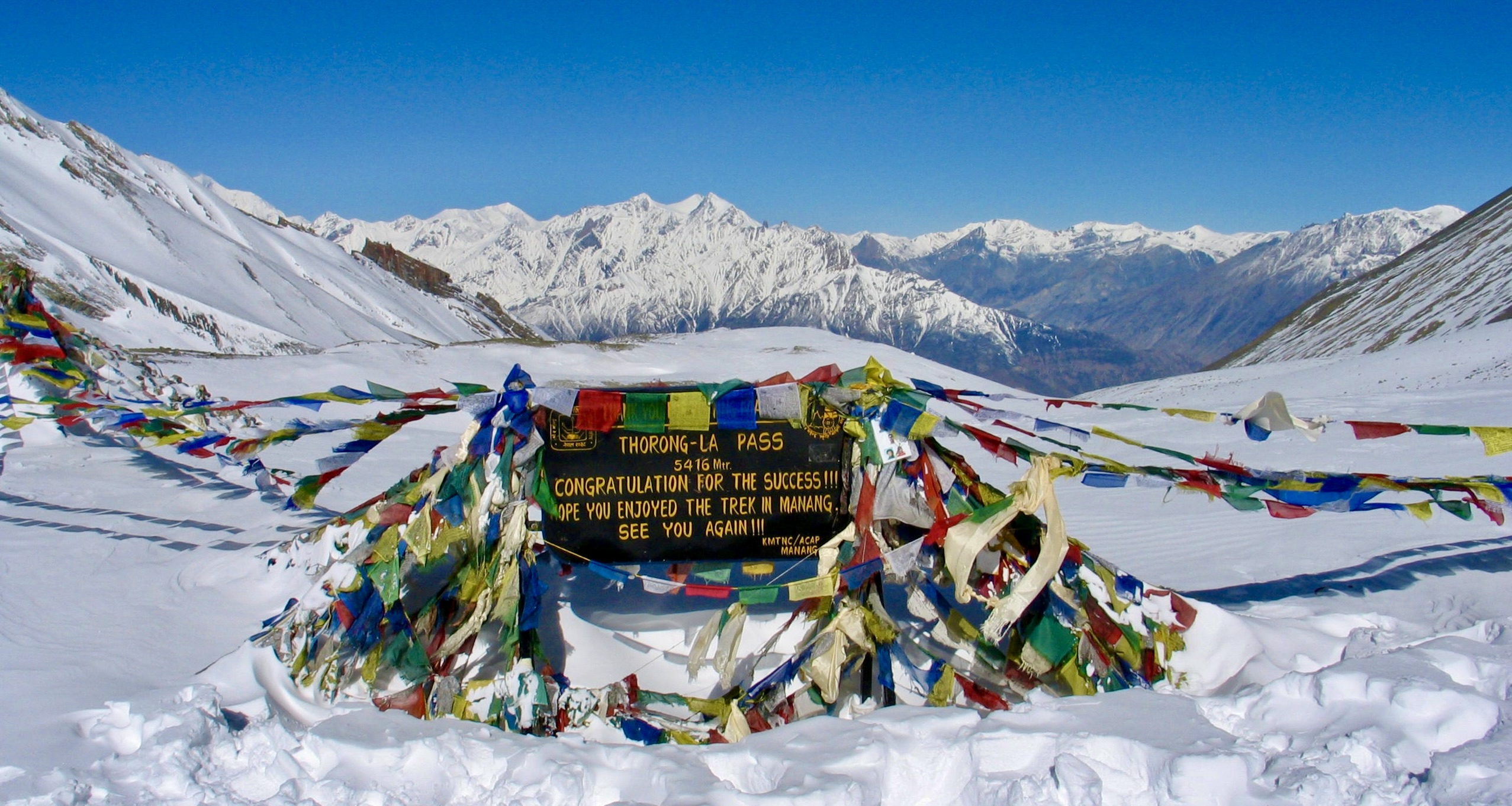
We've curated special experiences like private hot spring sessions in Tatopani and exclusive farm-to-table dinners featuring local Gurung cuisine. Our relationships with local communities ensure authentic cultural immersion while maintaining the highest comfort standards.
Langtang Valley: Exclusive and Untouched
Langtang remains our hidden gem for travelers seeking solitude with style. We've partnered with local families to create boutique homestay experiences that combine authentic Tamang hospitality with unexpected luxuries.
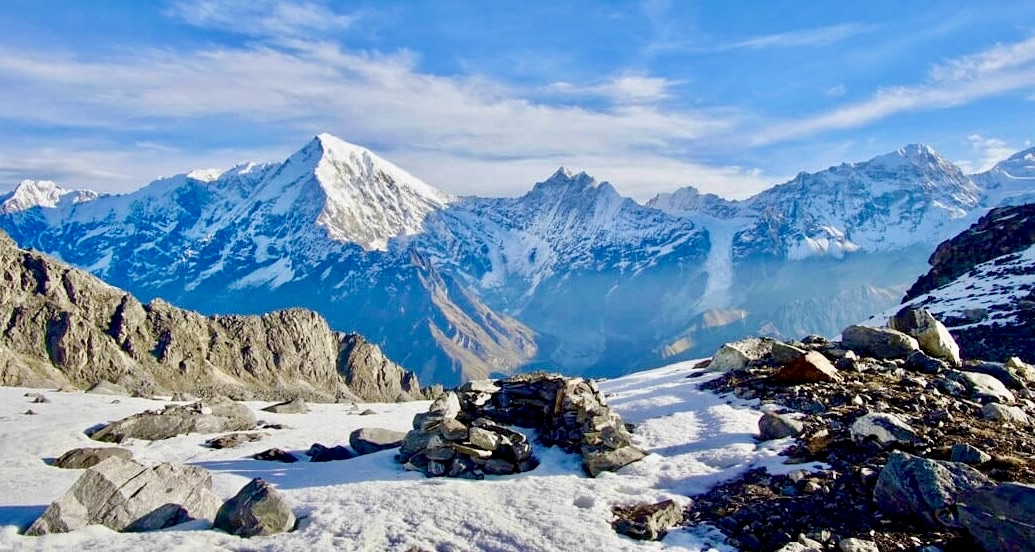
The valley's relative seclusion allows us to offer truly private experiences – imagine yoga sessions on secluded viewpoints and champagne toasts at sunset with not another tourist in sight. Our eco-luxury approach includes supporting local reforestation efforts and sustainable energy projects throughout the region.
Mustang Region: Ancient Culture with Modern Comforts
We've pioneered luxury experiences in this once-forbidden kingdom. Our Mustang journeys feature stays in meticulously restored traditional homes with modern amenities seamlessly integrated into ancient architecture.
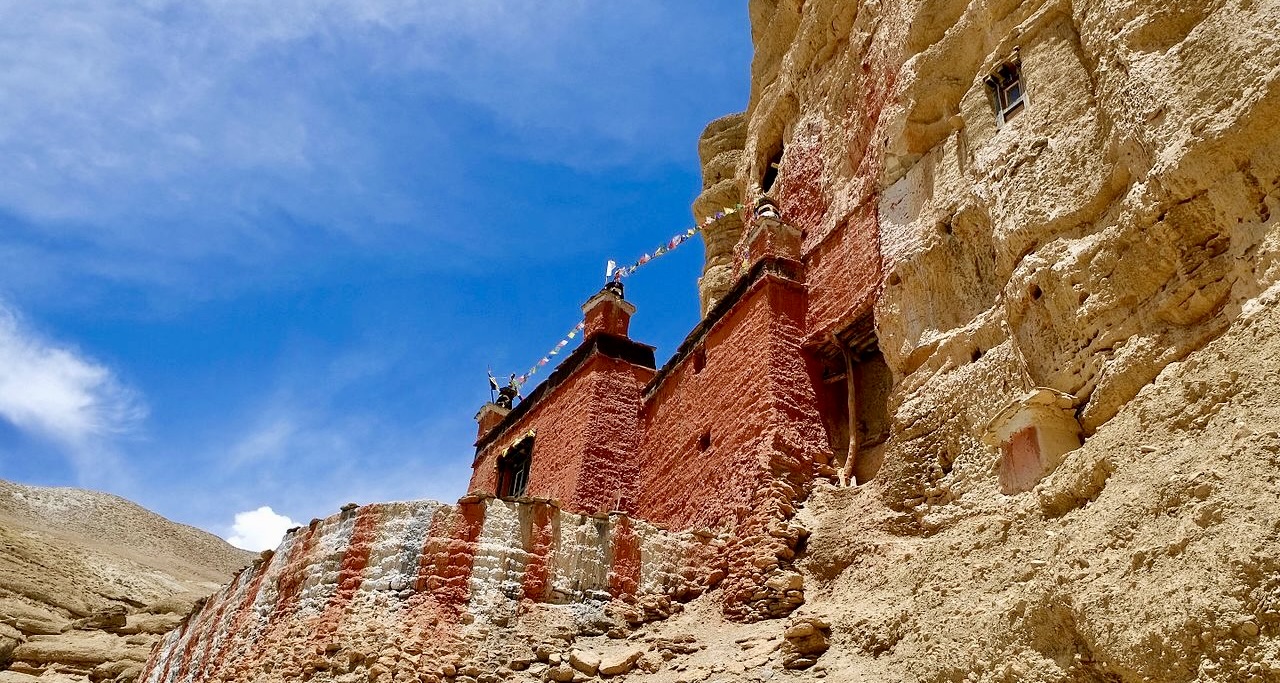
The stark, desert-like landscape creates an otherworldly backdrop for our exclusive offerings: private audiences with local shamans, helicopter excursions to remote monasteries, and candlelit dinners in medieval villages. Our partnerships with local conservation initiatives ensure this fragile ecosystem remains protected while allowing discerning travelers unprecedented access.
Manaslu Circuit: Off-the-Beaten-Path Luxury
The Manaslu Circuit represents the future of eco-luxury trekking. With limited permits issued, we've established relationships with the finest accommodations along this less-traveled route.
Our guests enjoy unparalleled exclusivity – private hot tubs overlooking glaciers, gourmet picnic lunches in remote valleys, and personalized photography sessions at the perfect times of day. We've worked with local communities to develop sustainable luxury standards that benefit both visitors and residents, creating an experience that feels both indulgent and responsible.
Exclusive Amenities on Eco-Luxury Treks
Boutique Lodge Accommodations with Spectacular Views
We've handpicked the most extraordinary lodges along Nepal's trekking routes that perfectly blend luxury with sustainability. Our boutique accommodations are strategically positioned to offer breathtaking panoramas of snow-capped peaks and verdant valleys. Think floor-to-ceiling windows that frame the Annapurna range as you wake up, or private balconies overlooking the majestic Everest.
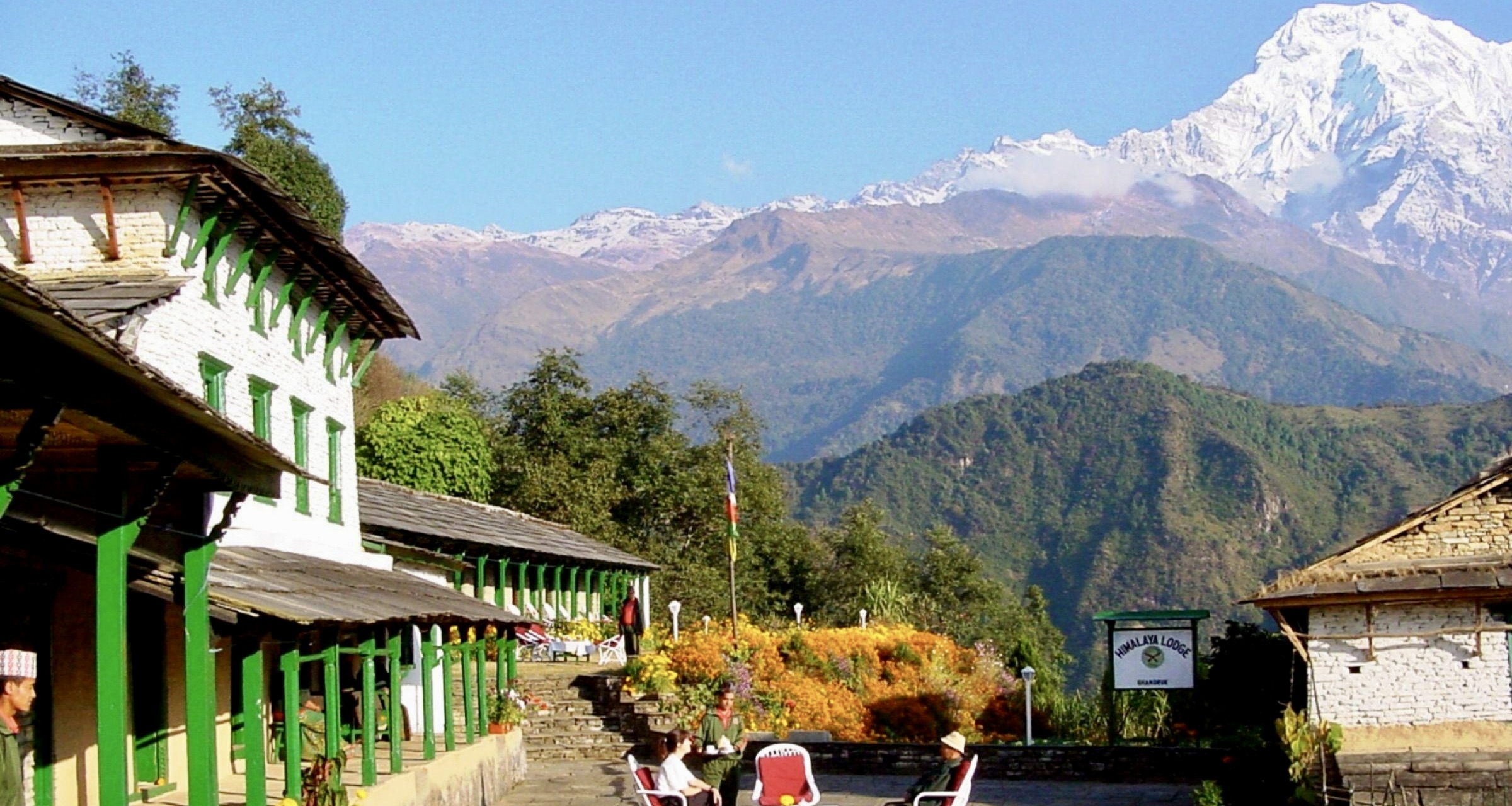
Unlike standard teahouses, our partner lodges feature plush bedding, private bathrooms with hot showers, and tasteful décor that incorporates local craftsmanship. Many use solar power and have implemented water conservation systems while maintaining five-star comfort.
Gourmet Organic Dining Experiences
Trail food doesn't have to mean compromise. Our treks feature exceptional dining experiences with menus crafted by professional chefs using locally-sourced organic ingredients. We collaborate with communities along the routes to bring you the freshest produce while supporting local farmers.
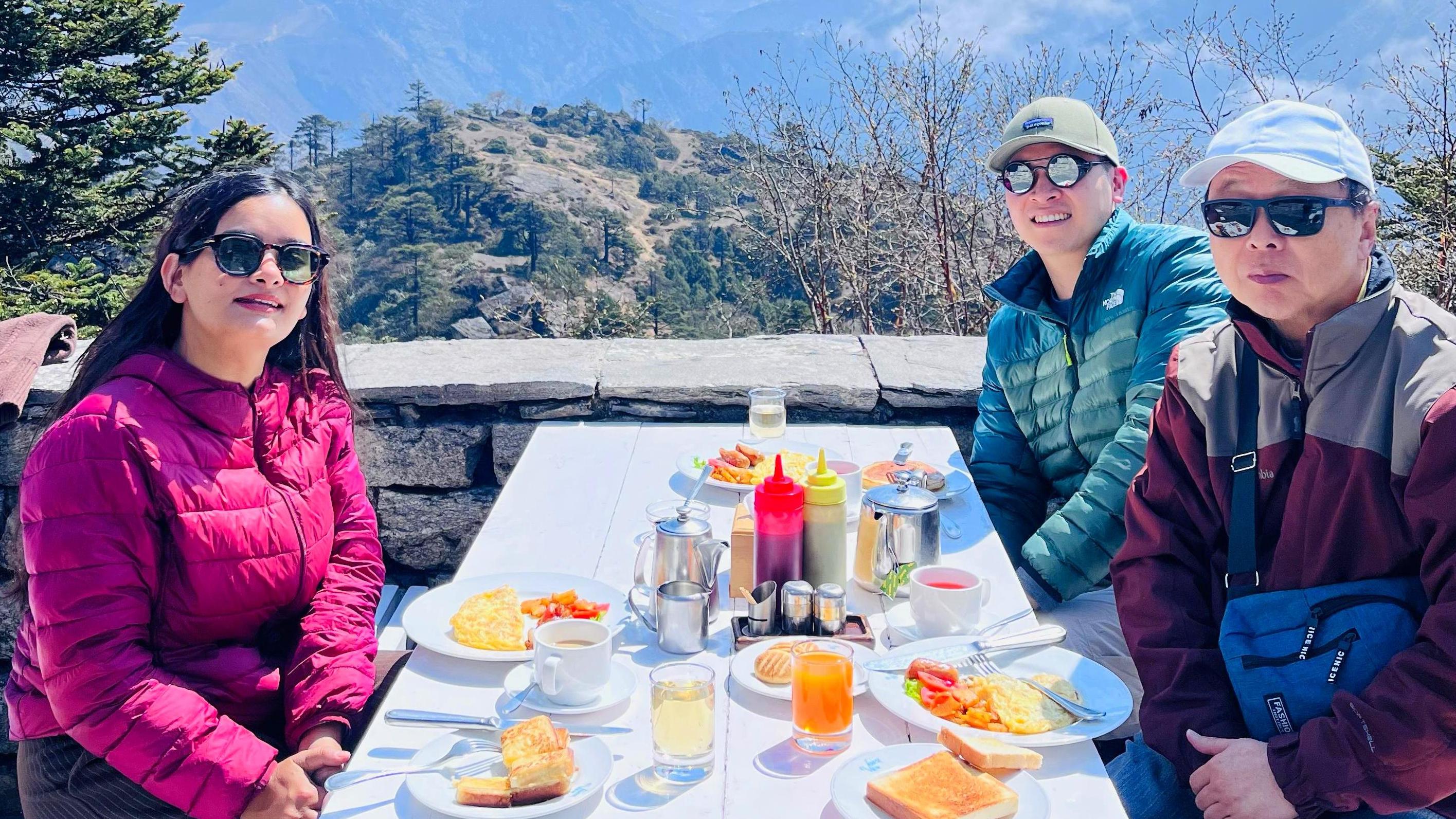
Imagine savoring a farm-to-table dinner of traditional Nepali cuisine with modern twists after a day of trekking. Our meals aren't just nutritionally balanced for high-altitude activities—they're culinary adventures that showcase Nepal's diverse flavors.
Personal Guides and Porters
Every luxury trek comes with a dedicated team committed to your experience. Our guides aren't just path-finders—they're cultural ambassadors, naturalists, and safety experts with years of experience and fluency in multiple languages.
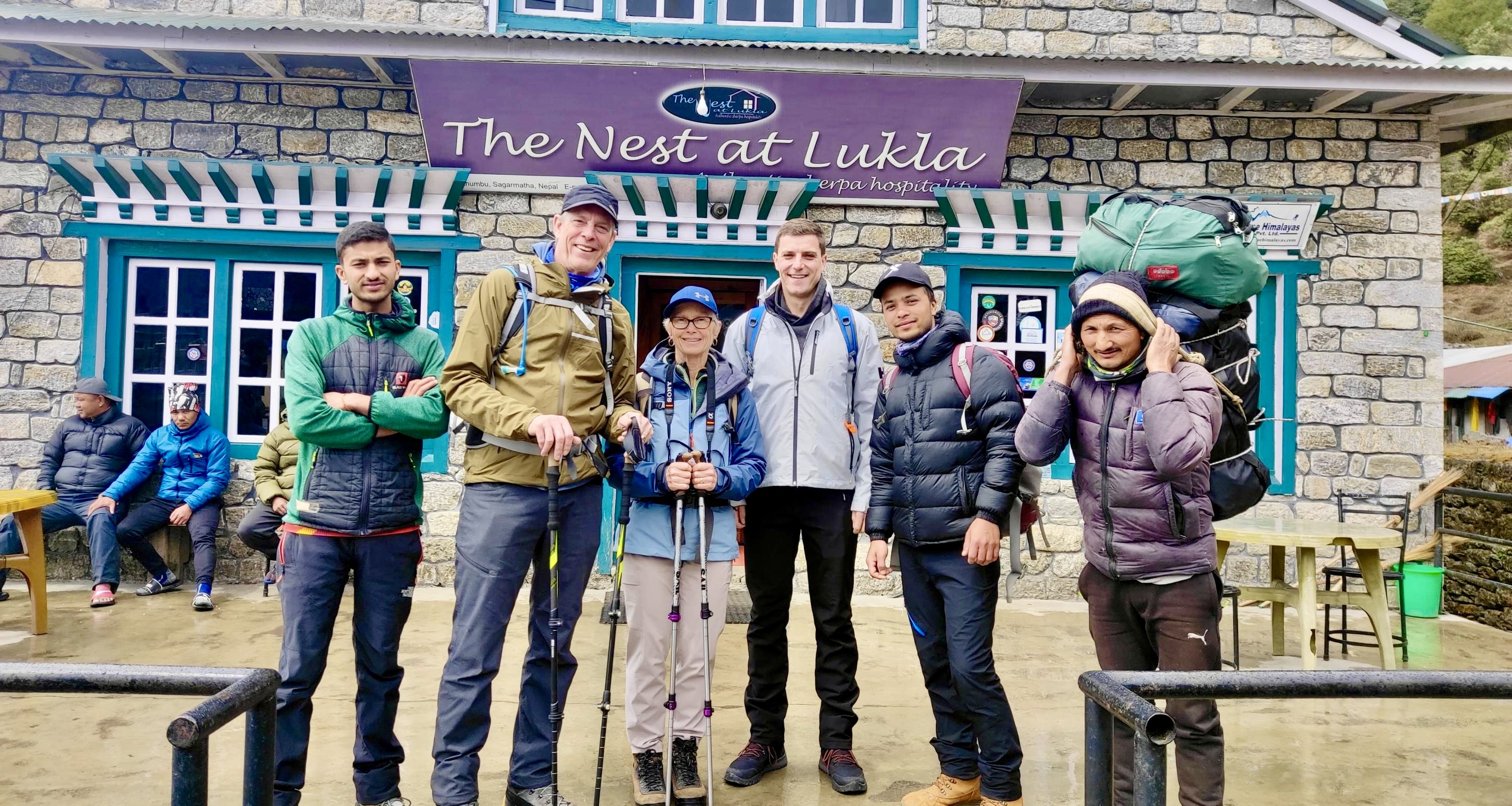
We maintain the industry's highest standards for porter welfare, ensuring fair wages and proper equipment. Your personal porter team manages all logistics, allowing you to trek with just a light daypack while enjoying meaningful cultural exchange with our staff.
Spa and Wellness Services After Long Hiking Days
The perfect reward after conquering challenging trails? Our signature post-trek wellness services. Many of our premium lodges offer massage therapy specifically designed for hikers, targeting sore muscles and promoting faster recovery.
You'll find traditional hot stone treatments, reflexology sessions, and yoga classes led by certified instructors. Some locations even feature outdoor hot tubs where you can soak while stargazing, or meditation spaces overlooking the Himalayas. These thoughtfully curated wellness options transform an already spectacular trek into a holistic journey for body and mind.
Sustainable Practices That Define the Experience
Local Community Engagement and Benefits
At Luxury Holidays Nepal, we believe true eco-luxury isn't just about minimizing harm—it's about creating positive impact. We've built deep relationships with local communities along our trekking routes over the past 15 years. Every trek we organize directly supports these communities through fair employment and authentic cultural exchange.
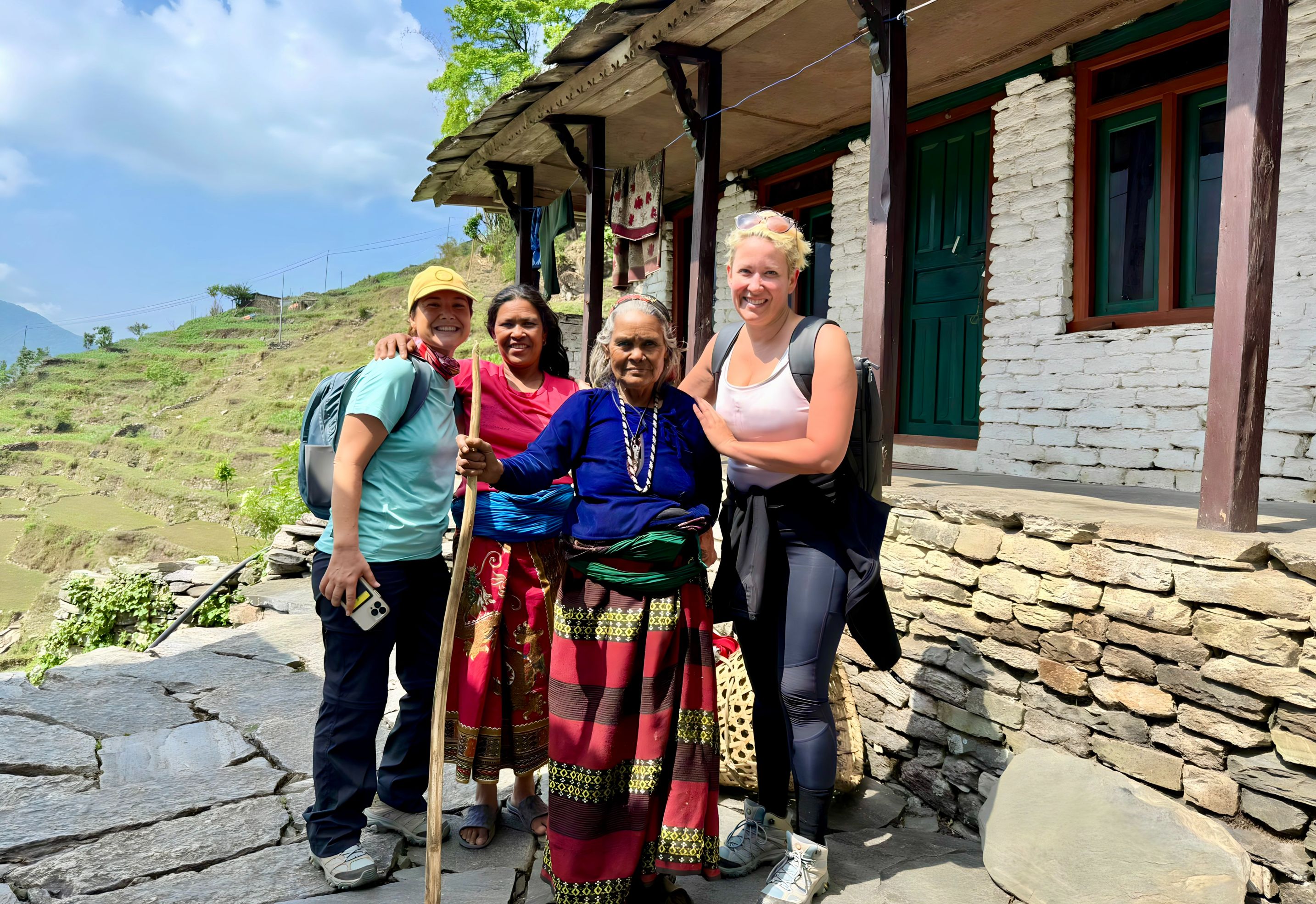
Our guides and porters come from nearby villages, earning wages well above industry standards. We provide year-round training and healthcare benefits to our team members. When you trek with us, 15% of your package cost goes directly to community development funds that support local schools, healthcare initiatives, and vocational training programs.
The homestays and lodges we partner with are locally owned and operated. You'll enjoy traditional meals prepared with ingredients sourced from nearby farms. That spicy dal bhat you're savoring? The vegetables were likely harvested that morning from gardens just steps away.
Waste Management and Minimal Environmental Impact
The pristine beauty of the Himalayas deserves our utmost respect. We implement strict "pack in, pack out" policies on all our treks—nothing gets left behind except footprints. Our luxury experiences come with reusable water bottles, biodegradable soap products, and solar charging stations for electronics.
We've pioneered a waste separation system at each overnight location, ensuring recyclables are properly processed. Our trek groups are intentionally small—never more than 8 travelers—to minimize trail impact and resource consumption.
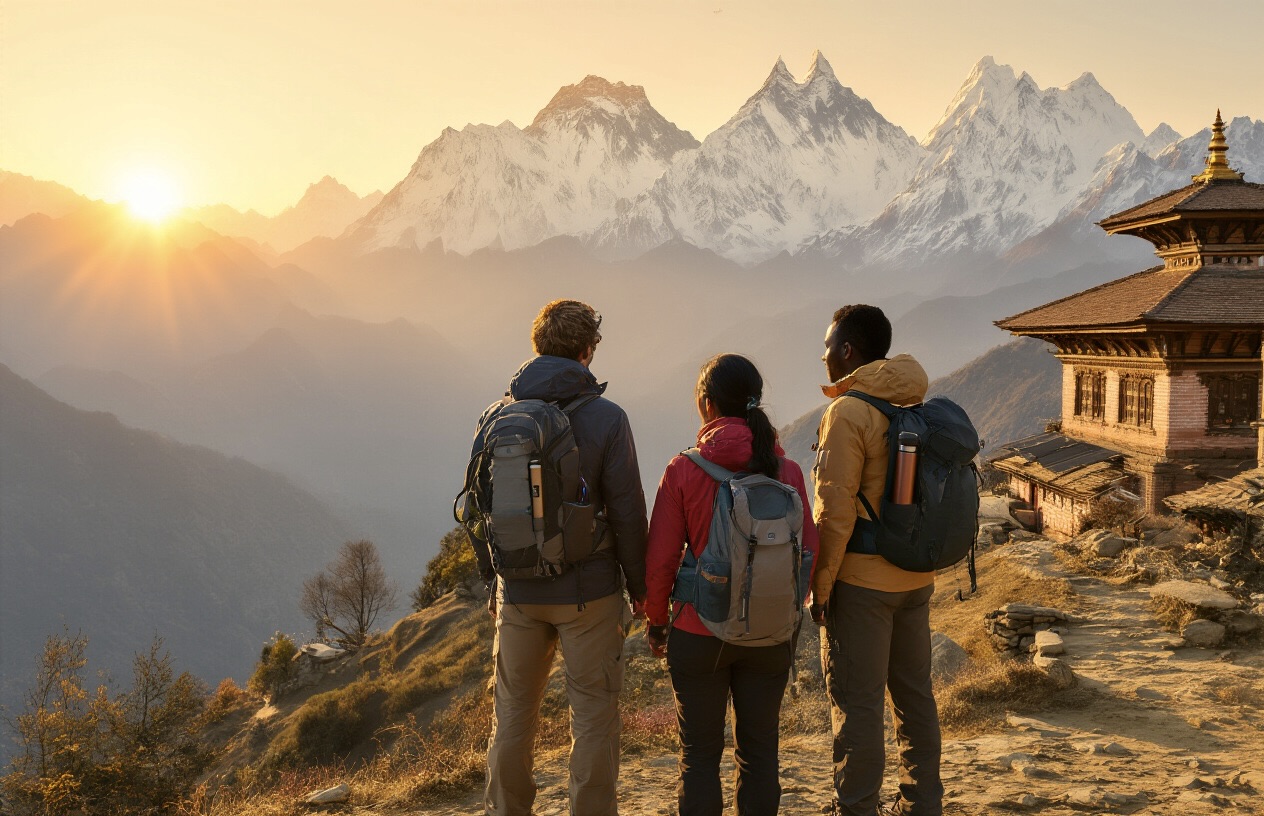
The luxury lodges we select use solar heating, rainwater collection systems, and energy-efficient designs. Even in remote areas, we provide eco-friendly toilet facilities that protect local water sources.
Conservation Initiatives Supported by Your Trek
Your adventure with us directly funds critical conservation work. We allocate 5% of all trek revenues to partner organizations preserving Nepal's biodiversity and fighting climate change impacts in the Himalayas.
We've helped establish wildlife corridors in the Annapurna Conservation Area and support anti-poaching initiatives protecting endangered species like the snow leopard and red panda. Our treks incorporate wildlife monitoring activities—guests often help collect data used by research scientists.
Climate change threatens these magnificent mountains. We offset 200% of the carbon emissions from each trek through local reforestation projects. Since 2015, we've planted over 15,000 native trees in high-altitude regions facing deforestation.
Planning Your Eco-Luxury Trek
Best Seasons for Premium Trekking Experiences
We've found that timing is everything for an unforgettable Nepal trek. The autumn months (September to November) offer the most spectacular conditions – crystal-clear mountain views, comfortable temperatures, and stable weather. This is peak season for good reason.

Spring (March to May) comes in as a close second. The rhododendron forests burst into brilliant reds and pinks, creating a photographer's paradise against snow-capped peaks. The temperatures are mild, and the trails are less crowded than in autumn.
Winter trekking (December to February) has its own charm for luxury travelers. While higher passes may be snow-covered, lower altitude treks offer clear, crisp days and virtually empty trails. Our heated accommodations ensure you stay cozy despite the chilly nights.
We avoid the summer monsoon season (June to August) for most treks, though rain-shadow areas like Upper Mustang and Dolpo remain accessible and offer a unique experience without the crowds.
Essential Packing for Comfort Without Excess
The key to luxury trekking? Pack smart, not heavy. We've refined the art of bringing just what you need:
- Layering system: Moisture-wicking base layers, quality insulating midlayers, and a premium waterproof outer shell
- Footwear: Well-broken-in hiking boots with ankle support and comfortable lodge shoes
- Sleep comforts: Lightweight silk liner (we provide luxury bedding at our accommodations)
- Personal care: Biodegradable toiletries, quick-dry towel, and essential medications
Our porters handle the heavy lifting, but we still recommend keeping your daypack under 5kg for your comfort on the trail.
Customizing Your Itinerary with Luxury Holidays Nepal
Cookie-cutter treks? Not our style. We craft each journey around your preferences, fitness level, and bucket-list experiences. Want to spend an extra day in that charming mountain village? Done. Prefer a helicopter return after reaching your summit? We'll arrange it.
Our planning process starts with understanding what "luxury" means to you – whether it's the finest accommodations available, gourmet meals prepared by our expedition chefs, or simply having flexibility built into your schedule.
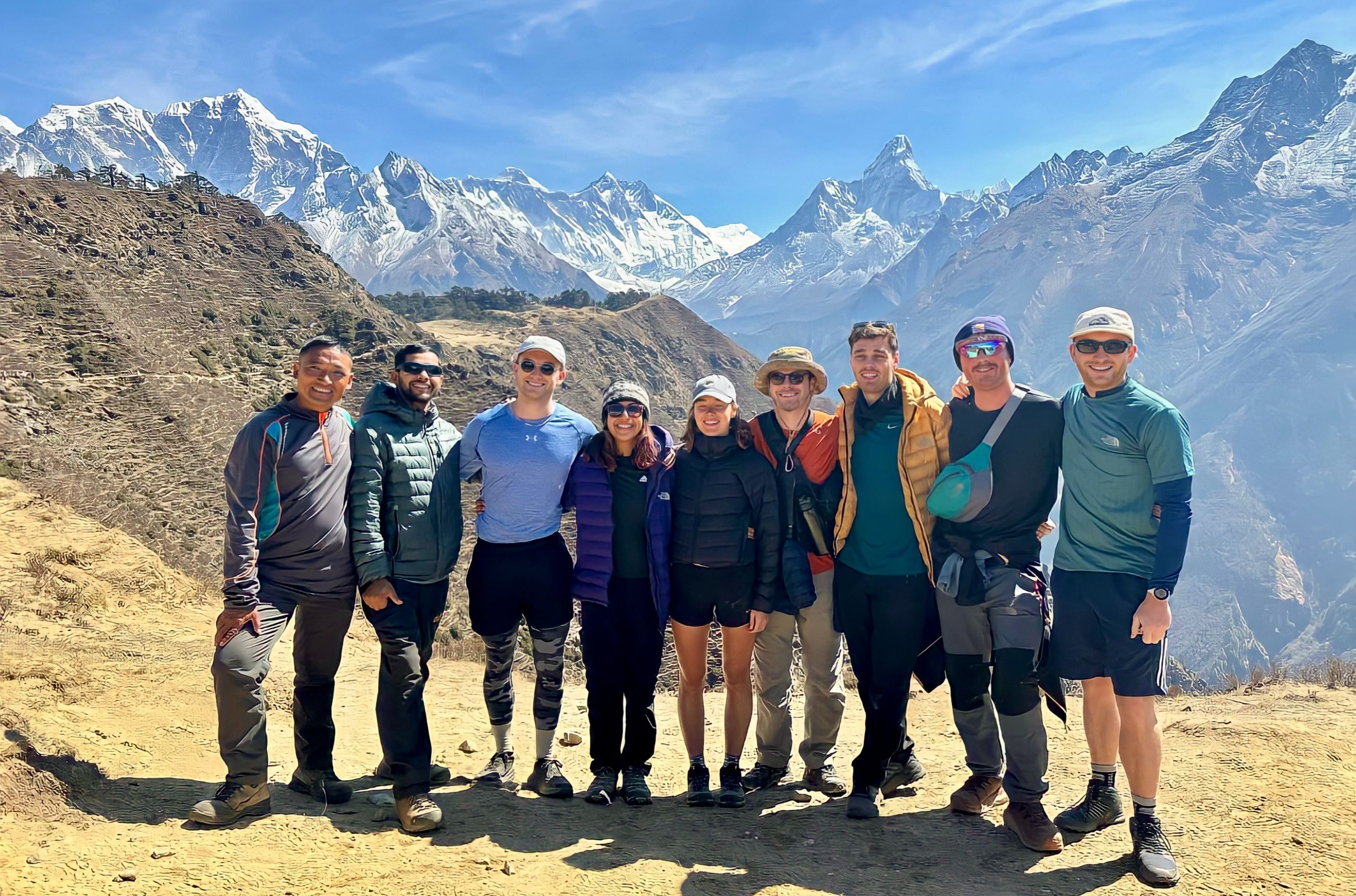
We pride ourselves on balancing authentic experiences with premium comforts. Our local connections mean access to exclusive homestays, private viewpoints, and cultural encounters rarely experienced by standard trekking groups.
Health and Safety Considerations with Premium Support
Your wellbeing is our top priority. Our treks include comprehensive safety measures that go beyond industry standards:
- Pre-trip medical consultations with altitude specialists
- Portable hyperbaric chambers and emergency oxygen on high-altitude routes
- Satellite phones and GPS trackers with every guide
- Helicopter evacuation insurance is included in your package
We've established relationships with medical facilities throughout Nepal and maintain communication with your guide throughout your journey. Our team is trained in wilderness first aid and high-altitude medicine.
Acclimatization isn't rushed – we build proper rest days into every itinerary, allowing your body to adjust while you enjoy luxurious recovery at our carefully selected lodges. This thoughtful pacing is what allows our clients to enjoy the journey and reach their goals safely.
The Transformative Value of Eco-Luxury Trekking
Connecting with Nature Without Sacrificing Comfort
Ever wondered if you could trek through pristine Himalayan landscapes while still enjoying a hot shower at the end of the day? We've pioneered this perfect balance in Nepal.
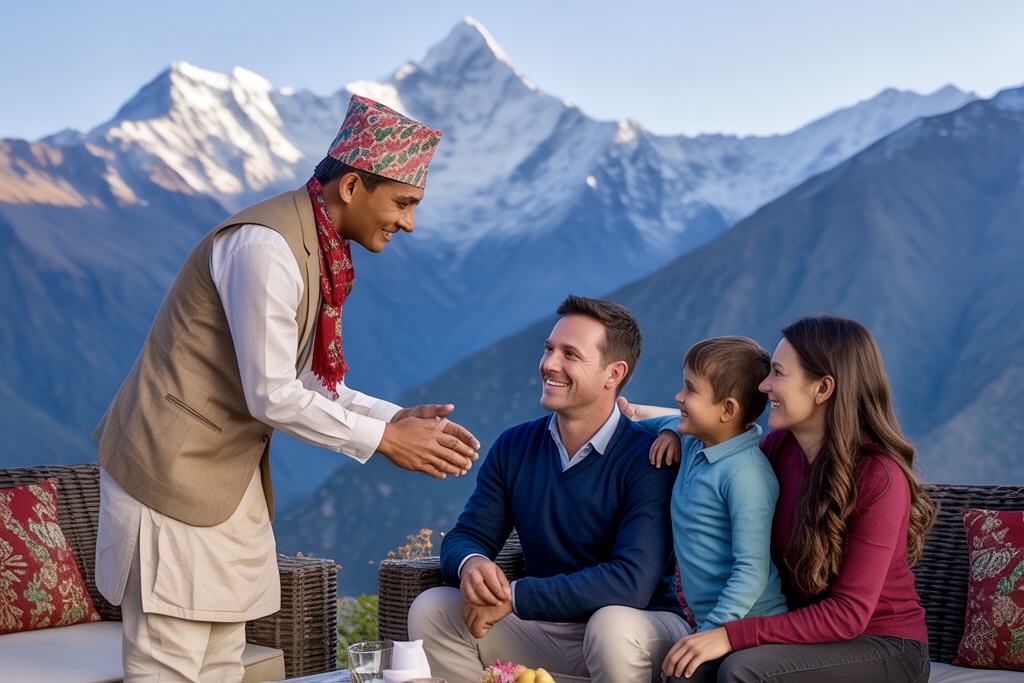
Our eco-luxury treks don't force you to choose between authentic wilderness experiences and comfort. We've carefully selected accommodations that blend seamlessly with their surroundings while offering amenities that refresh and rejuvenate. After a day of breathing in the mountain air and soaking up panoramic views, we welcome you to cozy lodges with sustainable practices at their core.
What makes our approach different is the thoughtfulness behind every detail. Solar-heated showers, locally-sourced organic meals, and comfortable bedding await you after your daily adventure. We've seen firsthand how this balance enhances rather than diminishes the connection to nature.
Cultural Immersion with Respectful Boundaries
The heart of Nepal beats in its people and traditions. We create meaningful cultural exchanges that benefit both our trekkers and local communities.
Our trips include visits to traditional villages where you'll share meals with local families, participate in ceremonies when invited, and learn about daily life in the mountains. But here's the crucial difference – we're not tourists intruding with cameras. We're respectful guests who understand boundaries.
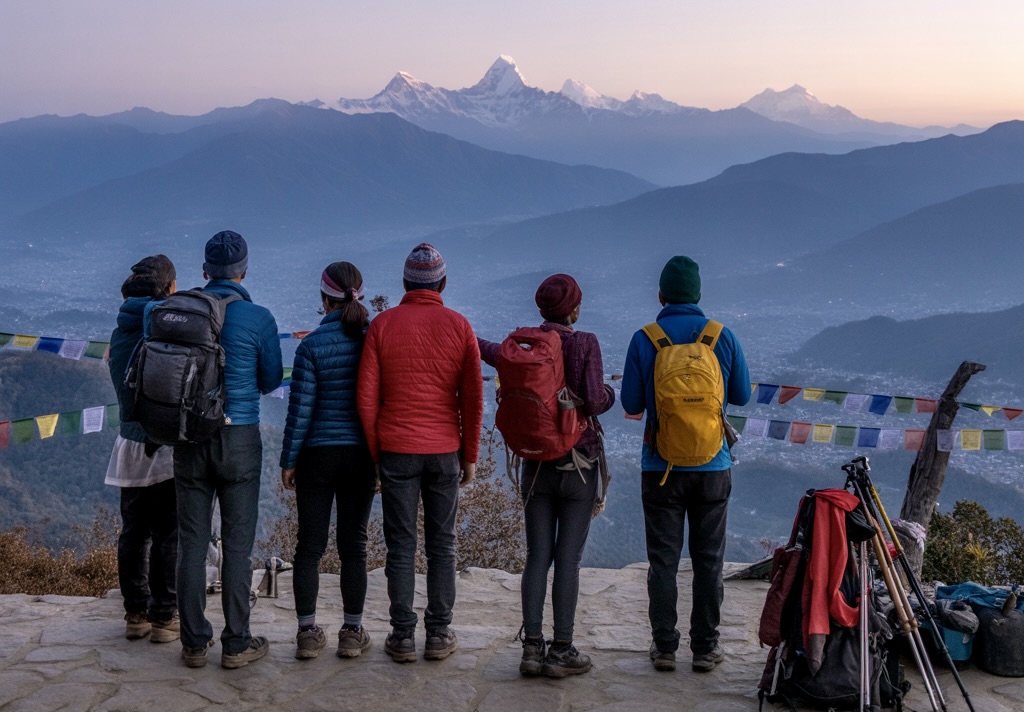
We've built relationships with communities over decades, ensuring our presence contributes positively to their economic wellbeing without disrupting cultural integrity. Every interaction is guided by mutual respect and genuine curiosity.
Personal Growth Through Supported Challenges
The trails of Nepal have transformed countless lives, including our own. We've witnessed how pushing physical boundaries while having the right support creates the perfect environment for personal growth.
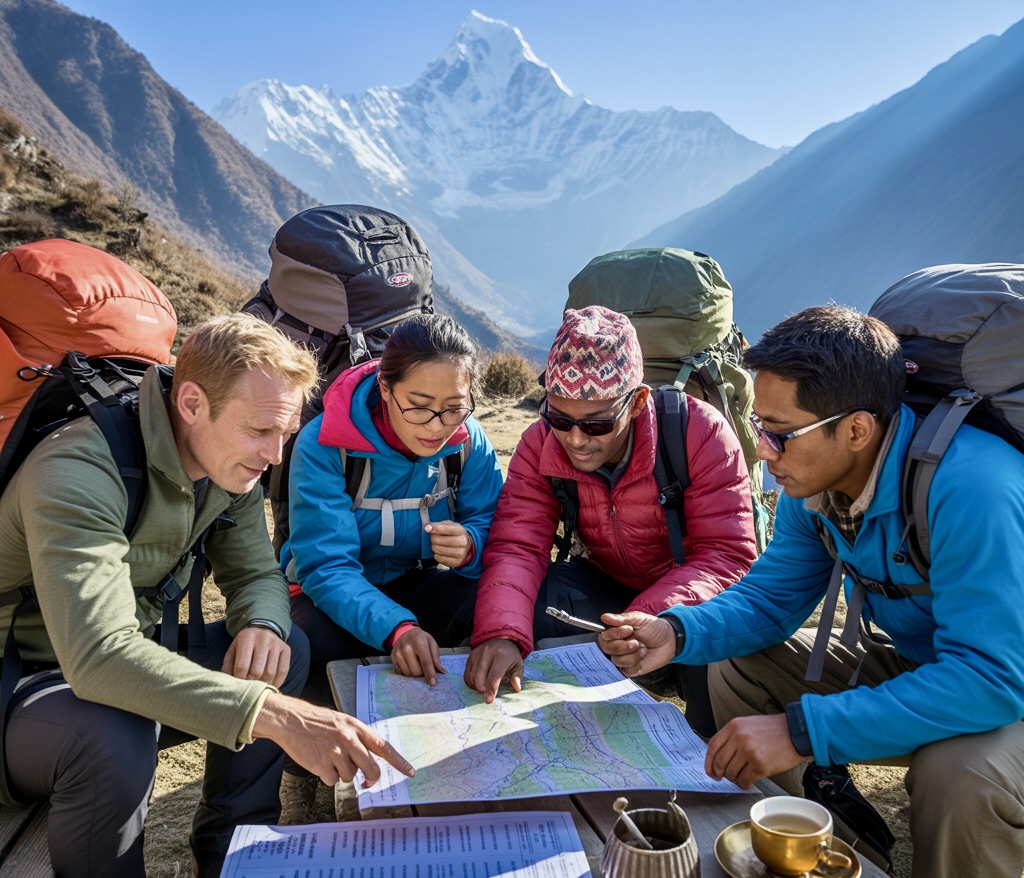
Our treks challenge you – the altitude, the distance, the disconnection from modern life – but never beyond what's productive. Expert guides, porters, and carefully planned itineraries ensure you can focus on the journey inward while we handle the logistics.
The magic happens in this sweet spot: facing genuine challenges with just enough support. We've seen shy travelers find their voice around evening fires, stressed executives rediscover perspective beneath star-filled skies, and individuals connect with parts of themselves long forgotten in busy lives.
This transformative journey stays with you long after you've returned home. The mountains have a way of reshaping perspectives that city life simply can't match.
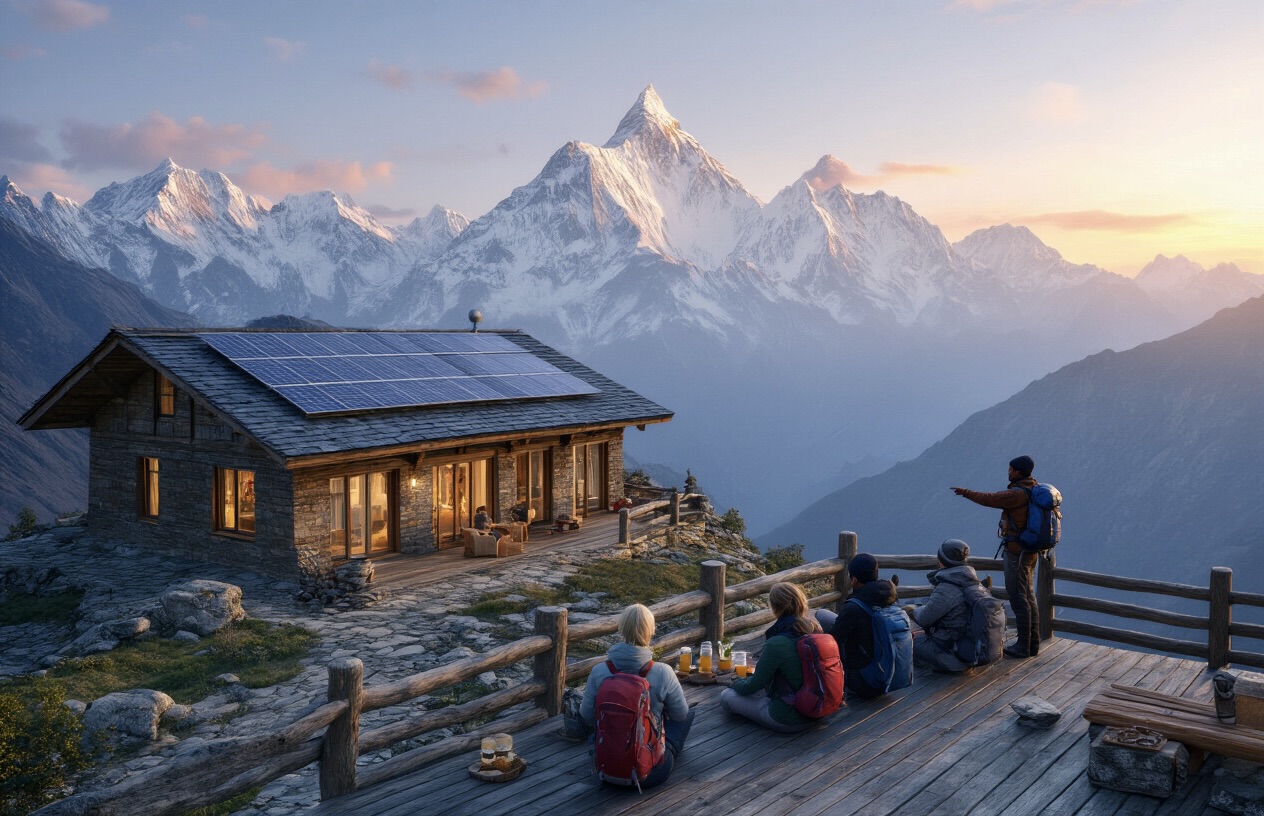
Nepal's eco-luxury trekking offers a harmonious blend of adventure and responsible tourism. From the majestic Everest Base Camp to the serene Annapurna Circuit, these experiences combine breathtaking landscapes with premium accommodations and services while maintaining a commitment to environmental preservation and local community support.
As you plan your journey, remember that the true value of eco-luxury trekking extends beyond comfort—it's about connecting with nature and culture in a meaningful way. By choosing a sustainable adventure with Luxury Holidays Nepal, you're not only treating yourself to an unforgettable experience but also contributing to the conservation of Nepal's pristine wilderness and the well-being of its communities. Your footprints will be light, but your memories will last a lifetime.
If you need any further information, please contact us by email: [email protected], Phone: +977- 985 100 5129 (WhatsApp).

